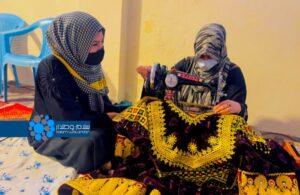KABUL (SW) – United Nations Secretary-General António Guterres emphasized the need for safe and inclusive migration systems to uphold the human rights of migrants worldwide, in light of the challenges they face, including discrimination, violence, abuse, and trafficking.
On the occasion of International Migrants Day, in a statement shared on his X account on December 18, , the UN Secretary-General wrote, “Today is also a day to remind ourselves of the challenges migrants face—ranging from prejudice and discrimination to outright violence, abuse, and the unimaginable cruelty of human trafficking. As a global community, we must call on our shared humanity and work to reverse these harmful trends. Today and every day, let us defend the rights of all migrants and work toward the creation of safe, humane, and inclusive migration systems.”
The International Organization for Migration (IOM) has also stated that, based on its estimates, by the end of 2023, nearly 117.3 million people globally will be living as migrants due to persecution, conflict, violence, and human rights violations in their home countries.
Afghanistan has consistently been among the countries with the highest number of migrants worldwide. Recently, the IOM reported that from 2020 to 2024, nearly 8 million Afghans have migrated, with 85% of them heading to neighboring countries, especially Iran and Pakistan, while nearly 1 million have moved to European countries.
Many Afghan migrants in neighboring countries and Europe cite the search for better living, work, and educational opportunities as the main reasons for their migration.
Hadi, an Afghan migrant in Pakistan, shares, “The majority of those who migrate from Afghanistan do so due to specific problems, including security, economic, and social challenges, and many others do so for education. The country’s situation forces them to migrate.”
However, Afghan migrants in host countries also face challenges due to unfamiliarity with the social and cultural environment of their new homes.
Sanowbar, an Afghan migrant in Iran, and Nastaran residing in France, mention that adapting to the host country is time-consuming and full of difficulties.
Despite these hardships, the Afghan migrants add that, compared to Afghanistan, they have access to more conveniences and opportunities in their host countries.
According to the IOM, Europe and Asia are the main regions of migration worldwide, hosting approximately 87 million and 86 million international migrants, respectively.






